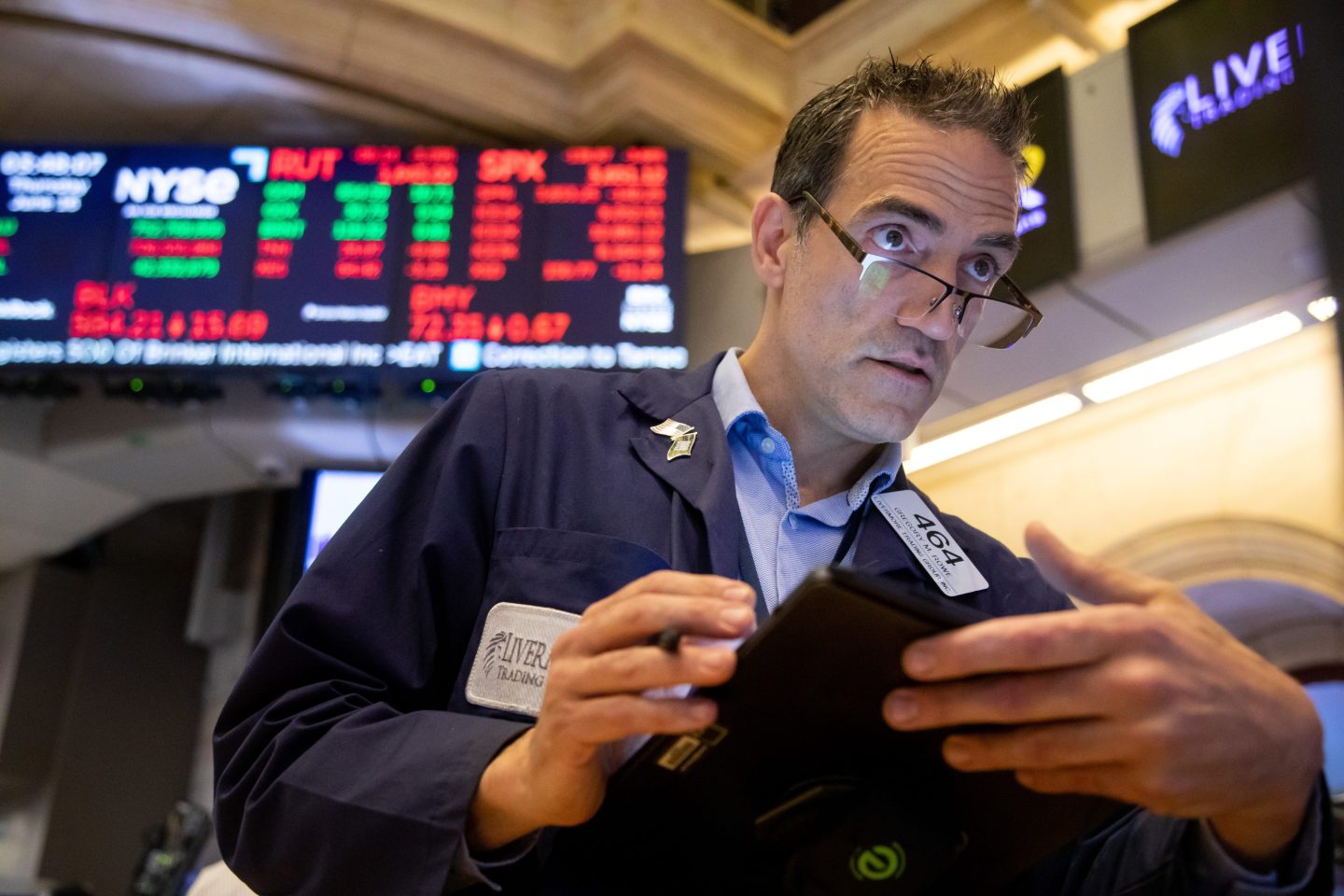Any investor has heard that past performance is not an indicator of future results. But when it comes to an expected looming recession, many people are looking to previous ones for a guideline of what to expect.
Nikolaos Panigirtzoglou, a strategist at JPMorgan, is the latest to chime in, noting that the stock market‘s pattern of late is very reminiscent of what was seen in the days leading up the 1969 recession. Fortunately, for consumers, that one proved to be fairly mild.
“Using the 1969 U.S. Recession as a guide, the picture we get is of continued equity market declines up to six months after the start of the recession, but a quick recovery after then,” says Panigirtzoglou.
The stock market is one of the keys to the comparison. In ’69, the S&P 500 saw a total decline of 34%, bouncing back to a 20% drop from its peak when the recession finally started. The current index is down a little more than 20% from its 52-week high.
The U.S. Treasury yield curve slope at present is also very similar to what investors saw in 1969.
Beyond the economics, there are other similarities between 2023 and 1969. That economic downturn came as inflation raged, following the end of the Vietnam War, as government officials raised rates at the same time they began focusing on budget deficits that came from the war.
Economic growth resumed in 1970, lasting until 1973, when OPEC issued an embargo on all oil imports, including the U.S., causing prices to quadruple and the stock market to crash, leading to a two-year bear market.
OPEC+, the modern equivalent of the ’70s-era Middle Eastern oil cartel, hasn’t taken such a drastic step in the 2020s, but this is another point of similarity: It did cut production in October, provoking an angry response from President Joe Biden and worrying world leaders about a new era of energy crisis. More recently, it has opted against further cuts, and prices have remained lower than they were before Russia’s invasion of Ukraine.
Our new weekly Impact Report newsletter examines how ESG news and trends are shaping the roles and responsibilities of today's executives. Subscribe here.












